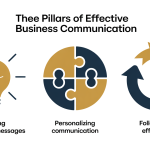
Maybe you’re reading a winner’s autobiography and put yourself into their shoes?
Or maybe while reading it, you start to think about what your success story would be like if you were asked to write it in the future?
Most people find themselves dreaming about this as they read a success story, and I’m no exception.
But one thing that I’m also interested in is finding patterns that are existent in every successful story that I’ve read, listened, or been a part of.
I’m determined to learn exactly what the shared values or mindsets of those winners are.
This research and thinking process led me to five qualities that are common among winners. Here they are in an easy-to-remember formula:
T – TAKE calculated risks.
H – HANDLE pressure.
I – IGNORE excuses.
N – NEUTRALIZE weaknesses.
K – KNOW your strengths.
STEP #1 = ‘T’
TAKE Calculated Risks
Winners don’t play it safe in their thinking; they go for it… but they also don’t think foolishly. The key is to “calculate” risks.
As someone who’s run his own business for over 20 years, one thing that always strikes me is the definition of “entrepreneurship.”
The definition always includes “taking risk,” as if that’s something what entrepreneurs are really after.
In reality, winners – including successful entrepreneurs – can accept taking some calculated risk in favor of an opportunity they see.
Avoid Unnecessary Risks
Here are three ways to help you avoid taking unnecessary risks:
Doing proper research and studying. Winners always do their homework beforehand.
They don’t jump into opportunities without learning about and knowing the landscape first.
They research the industry, look for data about the industry, and determine the competition within that industry.
Starting small. Winners never go full throttle into a new business venture when they’re just starting out in a new arena.
They always start small and test new ideas before they put their bets on.
Diversifying your assets. Much like many smart investors recommend, winners never put all their eggs into one basket.
Instead of placing all of their resources and efforts into one business or asset, they run a balanced portfolio of assets and investments.
Assessing Risks
And as a quick note, here are two questions worth asking while assessing risks.
- What will happen if you take that risk?
- What will happen if you don’t take that risk?
STEP #2 = ‘H’
HANDLE Pressure.
Many people start to tighten up and fear the pressure that comes with taking on a challenging task, such as starting a new business, learning a new occupation, writing and delivering a speech, etc.
However, winners think differently when they face such pressure.
Winners deal with pressure by focusing on the following tips:
Tip One
Be prepared. By doing the necessary preparation ahead of time, you can and will feel confident that you will do your very best work in overcoming the challenge that lies ahead of you.
Doing your homework ahead of time will lead to you being relaxed so you don’t feel much pressure.
Tip Two
Focus your energy on things you can control and not on things you can’t control.
Keep in mind that you can only influence the factors that are under your control.
In addition, worrying about things that are out of your control will cause you to lose focus on the things you can control.
Tip Three
Realize that some pressure is good. In most instances, just the right amount of pressure can help you to take action.
If you experienced no pressure, you wouldn’t be that eager to finish a project in a timely manner.
Tip Four
Be willing to ask for help. Even the most successful do not know everything. Winners know that there’s nothing wrong with asking for help when needed.
Tip Five
Do your best to stay healthy. It is important that you eat right, drink plenty of water, and exercise regularly.
All of these activities, along with getting 6-8 hours of sleep a night will enable you to remain at optimum health, which will enable you to more easily overcome the challenges you face every day.
STEP #3 = ‘I’
IGNORE Excuses
It is quite common for people to think of all sorts of excuses of why they can’t succeed, why they shouldn’t even try, etc.
However, what’s important to realize is that virtually all excuses are made up in one’s mind.
And oftentimes, those excuses are overblown, being made up to be much more challenging to overcome than they actually are.
Therefore, you need to overcome the mental barriers that stand between you and your goal, and the following actions should help you to do just that:
Action One
List all of your excuses and get rid of them one by one. The best way to handle excuses is to first identify them on paper or in a text file on your computer.
You then want to determine exactly why those excuses won’t stop you from achieving your goal.
Action Two
Learn from your mistakes and change your behavior as a result.
Analyzing your mistakes to see where you went wrong before will help you determine what exactly you need to do differently in the future.
After all, as the old saying goes, “You can’t expect different results if you do the same exact things.”
Action Three
Look for other examples to learn and grow from.
When you are struggling how to adapt your methods to overcome a challenge, look to others who had similar challenges to what you are facing.
How did they go about overcoming the challenges they faced?
Learn what they did and adapt those methods to work for your particular situation.
STEP #4 = ‘N’
NEUTRALIZE Weaknesses
Even winners, no matter how successful they are perceived to be, have weaknesses too.
However, the difference between the winners and losers are that winners don’t allow their weaknesses to stand in the way of their achieving their goals.
Oftentimes, it’s not the weakness itself that holds a person back, but rather, it’s the thought of the weakness that will hold a person back.
The following actions should help to make sure that your perceived weaknesses don’t hold you back from achieving your goals:
Action One
Recognize and admit your weaknesses.
The only way you are going to overcome your weaknesses is by actually acknowledging them and taking steps to overcome them.
Just ignoring them will not make them go away, nor enable you to overcome them in pursuit of your goal.
Action Two
Look for ways to turn your weakness into an advantage.
If you can’t eliminate the weakness, admit the weakness and see if you can turn it into a source of strength.
For example, you could admit you have this weakness and then show how you have learned to control this weakness.
Let alone doing this can help to make you appear stronger to others.
Action Three
Look at your weakness as an opportunity to train and educate yourself. Nobody is perfect, but winners look for opportunities to improve themselves. (And, tell me, what’s more appealing than working on your identified weaknesses?)
STEP #5 = ‘K’
KNOW Your Strengths
While you need to identify your weaknesses, you should also identify your strengths.
By knowing your strengths, you can determine exactly what tasks and challenges you can handle on your own and which tasks and challenges you will need help with.
The following actions will help you to learn more about your strengths and how to best utilize them to reach your goals:
Action One
Know yourself and discover what excites you the most.
To really know your strengths, you have to know what tasks you are good at doing and what activities really excite you.
Pay attention to exactly what intrigues and excites you, that is what you will likely be good at or will become good at the easiest.
Action Two
Build upon your strengths and become an expert in what you like.
In order to learn and build upon your strengths, you must gain more knowledge and practice in those skills.
By adding more ability to your natural talents, you’ll build that snowball effect.
Action Three
Find a fit for your strengths. Winners not only discover their natural strengths, they also utilize it in ways that can create value for themselves and for others.
And you must do the same.















